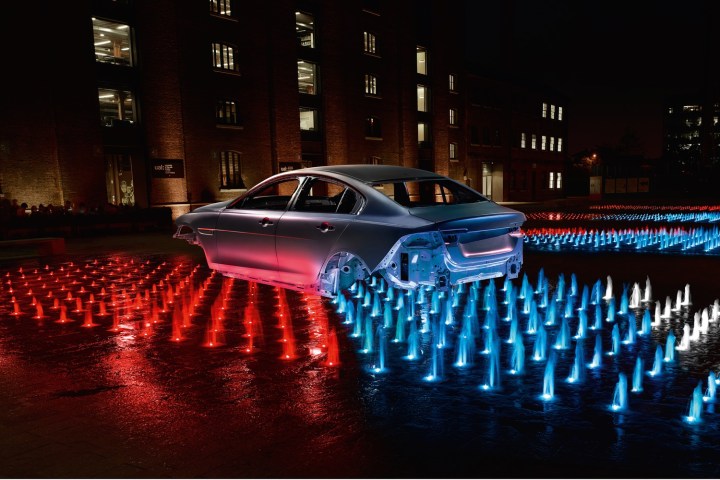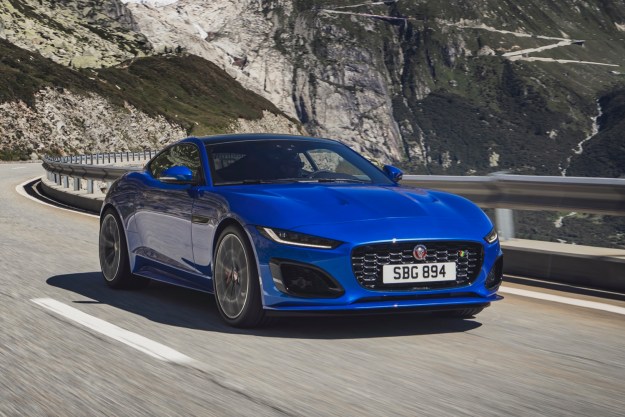
Jaguar previously used aluminum for models like the F-Type and XJ, but it also gave its less-expensive 2017 XE an aluminum body. Ford did the same when it redesigned the F-150 pickup truck for 2015. Both companies believe lighter aluminum bodies are a good way to increase fuel economy, but their environmental commitments don’t stop there. Welcome to the recycling wars.
Jaguar and Ford both claim to use large quantities of recycled material in their high-volume, aluminum-intensive models. The F-150 is the bestselling vehicle in the U.S., and Ford claims a large amount of the aluminum that goes into it is recycled, thanks to a “closed loop” process that uses scraps from the company’s own Dearborn Stamping Plant.
Ford says 30 to 40 percent of the metal in a typical aluminum coil is turned into scrap in the process of producing body parts. Under the closed loop system, that scrap is sent back to aluminum suppliers for recycling, which saves a vast amount of energy, Ford claims. The carmaker claims recycled material eliminates 95 percent of the carbon emissions associated with aluminum production, which in turn lowers the carbon footprint of the F-150.
Read more: Ford F-150 police edition takes the chase off road
Ford gets plenty of aluminum from this process, too. It says it recycles 20 million pounds of aluminum each month, enough to make about 30,000 F-150 bodies. The recycled aluminum goes right back to the Dearborn Stamping Plant, which supplies F-150 assembly lines in both Dearborn and Kansas City. The 2017 Ford Super Duty is switching to an aluminum body, too, providing another potential use for recycled metal.
The Jaguar XE doesn’t sell in the same massive numbers as the F-150, but it’s probably still the highest-volume aluminum car Jag has ever made. The XE is just now going on sale in the U.S., but production for the European market began last year. Since then, Jaguar says it’s used 55,000 tons of recycled aluminum — enough for 200,000 XE body shells.
Jaguar also uses a closed loop system that takes scrap the factory floor and melts it down to be reused. The XE’s body shell was actually designed specifically to incorporate an aluminum alloy made from a high percentage of recycled material. The carmaker hopes to use 75 percent recycled content across its entire lineup by 2020.
Editors' Recommendations
- Here’s how Ford will give EV customers Tesla Supercharger access
- Ford is only making 2,000 of these matte black F-150 Lightnings. Here’s your first look
- 2022 Ford F-150 Lightning: America’s bestselling vehicle goes electric
- The best-sounding cars
- 2021 Ford F-150 hybrid first drive review: Tech can be tough


